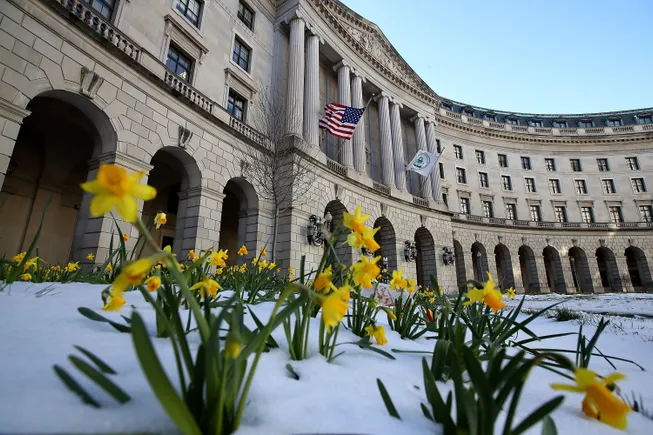
The U.S. Environmental Protection Agency filed a motion Wednesday opposing motions for injunctive relief filed by three nonprofits that have had their access to Greenhouse Gas Reduction Fund grant money frozen, arguing that their monetary harm does not warrant an injunction and is not irreparable.
The nonprofit Climate Fund United, which received a $6.97 billion National Clean Investment Fund grant, was the first to sue over the frozen funds last month, targeting EPA and fund holder Citibank. The Coalition for Green Capital, which received $5 billion from the NCFI, and Power Forward Communities, which received $2 billion from it, have each filed lawsuits against Citibank.
EPA argued for the injunction requests filed by each to be denied, as “an injunction should be denied when Plaintiffs’ alleged harms are monetary and may be remedied by damages” and “in terminating Plaintiffs’ grants, EPA has not prohibited or made it unlawful for Plaintiffs (or their subgrantees) to carry out their work.”
“Nor has any other government action,” EPA said. “The government is not preventing Plaintiffs from providing services; EPA has just terminated the contracts under which the government would provide reimbursement for those services.”
In a joint response filed Friday, the three plaintiffs argued that they have already “demonstrated several forms of irreparable harm, including potentially fatal disruption to Plaintiffs’ operations; irreplaceable loss of clients, partnerships, and opportunities; devastating reputational injury; interference with Plaintiffs’ missions; and an immediate risk of insolvency for some of the Plaintiffs and their subgrantees.”
“Many of these injuries have already materialized and will worsen if Plaintiffs continue to be deprived of access to their funds,” they said.
The plaintiffs argue that the U.S. District Court for the District of Columbia, where the case is being heard, has previously held that financial harm can constitute irreparable harm when the existence of a business is threatened — and note that the court previously agreed that the plaintiffs “will be unable to finance programs they have launched, and they will have to cease operations.”
When EPA froze the grant funding, the agency said it did so based on “financial mismanagement, conflicts of interest, and oversight failures with the Greenhouse Gas Reduction Fund” and has previously told the court that the grant recipients breached their contracts.
However, EPA argued in its March 26 motion that the court “should recognize that EPA retains the ability to end its agreements, whether or not doing so complies with a (contested) for-cause termination provision. Contract law recognizes every party’s right to perform or face remedies for breach.”
EPA also argued that the contracts no longer legally exist regardless of its reasoning for their termination.
“As another Judge of this Court recently put it: ‘When a contract is terminated, even wrongfully, there is no longer a contract — no duty to perform and no right to demand performance … there is only a right to seek and a duty to pay damages caused by the termination … Thus, even a party that lacks the authority to terminate a contract may do so anyway’,” EPA said.
The plaintiffs argued in their response that EPA “violated federal law multiple times over” when it froze their funding by violating “its obligation to provide a reasoned explanation for its decision … its regulations governing when and how a grant may be terminated … federal statutes by trying to eviscerate a program approved by Congress and seeking, without authority, to claw back already-disbursed funds.”



















